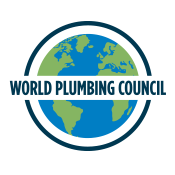The International Association of Plumbing and Mechanical Officials® (IAPMO) is proud to support DigDeep in launching the findings of a multiyear effort that brought together communities from across the United States to focus on sanitation access. In an event Thursday hosted by the U.S. EPA and the USDA, the DigDeep Decentralized Wastewater Innovation Cohort (DWIC) led a roundtable discussion in which participants shared their collective experiences and recommended opportunities to federal agencies working to close the water and sanitation gap imperiling more than 2.2 million Americans. As chair of the cohort’s Technical Advisory Board, IAPMO helped assemble and lead key industry stakeholders in offering technical expertise that contributed to the findings released Thursday.
The DWIC is a community-driven, multiyear effort to improve understanding of the wastewater challenges remote communities face across the United States, the solutions being developed, and the ways policymakers can improve the impact, sustainability, and scalability of those innovations. The DWIC created meaningful connections between rural communities piloting innovative solutions to tough wastewater challenges — from Alaska to New York—through facilitated working groups, site exchanges, and even trips to Washington, D.C., to meet with regulators. The DWIC’s members include the Navajo Water Project, the Alaska Native Tribal Health Consortium, Stony Brook University’s NYS Center for Clean Water Technology, Wastewater Alternatives & Innovations (WAI), and the Black Belt Unincorporated Wastewater Program (BBUWP).
“We are proud to support the cohort in presenting policy recommendations that would have a tremendous impact on bringing safe sanitation to millions of Americans,” said Christopher Lindsay, vice president of Government Relations for The IAPMO Group. “Universal access to water and sanitation underlies so much of the work we do at IAPMO. We were proud to offer our technical and policy expertise to support this effort that brought together leaders from across the United States.”
More than 2.2 million Americans lack access to basic plumbing, with many living in areas where a centralized wastewater system is not technically or economically feasible. In such cases, decentralized wastewater technologies — from traditional septic systems to advanced on-site wastewater treatment systems — are often key to connecting communities with the basic sanitation services they need, but they have lacked visibility, adequate funding, consistent regulation, and incentives for innovation in the past.
Despite federal initiatives that have sought to alleviate funding, regulatory, and technological issues, impacted communities still face significant barriers, which require policy and programmatic changes across the nation. There is urgent cause to rectify the wastewater injustices that communities have long faced across the country, and now, more than ever, federal funding is available to implement solutions.

